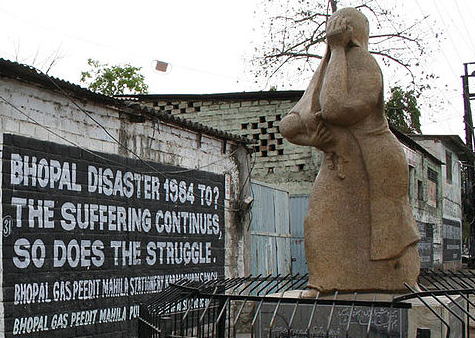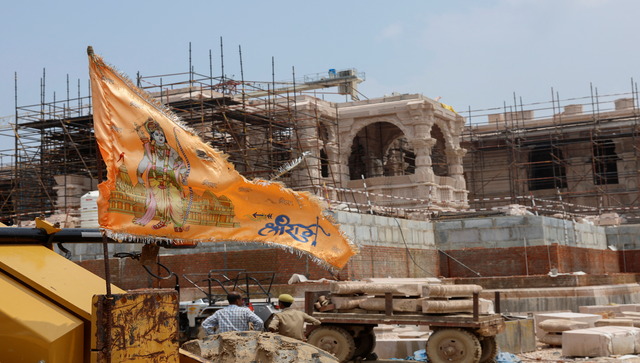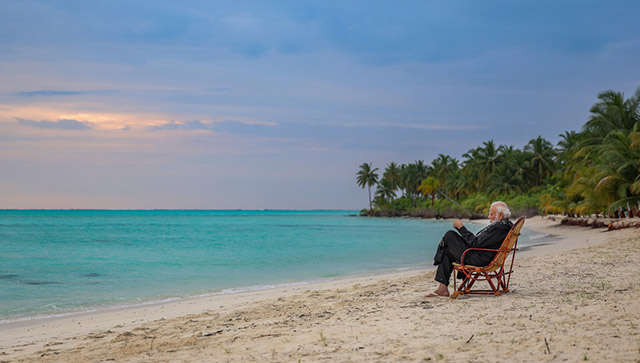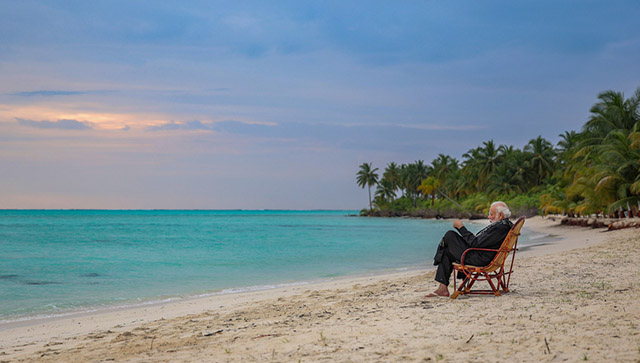The Bhopal gas leak from the factory on the intervening night of 2nd and 3rd December 1984 is estimated to have killed between 3,700 (official figure) and 25,000 people (activists’ estimate) and poisoned half a million. Its long-term effects — soil and water pollution; cancer and diseases of the lung, liver and kidney; birth deformities — continue to torment and kill.
The story of Bhopal gas tragedy becomes more glaring and tragic in the absence of any environmental assessment, accountability, punishment or lessons learnt. Even as a listless 38th anniversary of the Bhopal gas tragedy was observed with a public holiday in the Madhya Pradesh capital, a motion in the UK Parliament was moved, with the backing of 40 parliamentarians seeking justice.
Labour MP Navendu Mishra, for Stockport in northern England and chair of the All Party Parliamentary Group (APPG) for India (Trade and Investment), tabled the Early Day Motion (EDM) entitled ‘Campaign for justice for the victims of the Bhopal gas leak.’
In the British parliament, EDMs are short parliamentary proposals that give MPs the opportunity to publicise a cause and are often used to show widespread support for a particular issue.
They are equivalent to the special mentions or zero hour discussions of the Indian parliament.
Pitching for adequate financial compensation and better medical care, Mishra had remarked, “I hope by tabling this motion, Members of Parliament will do more to raise awareness about the campaign for justice and the government will take the action that is so desperately needed. Governments across the world should properly hold Dow Chemicals, the company that bought out Union Carbide, to account,” he said.
Apathetic attitude towards the tragedy
In contrast, the Indian parliament, Madhya Pradesh assembly or the two principal parties, the BJP and the Congress have been totally indifferent towards the plight of gas survivors or the larger issues of environmental damages or corporate responsibility.
Huge stockpiles of toxic material, estimated to be 350 metric tonnes are still lying at Bhopal’s now defunct Union Carbide factory and Bhopal has often been cleared as second cleanest city in the country by the Union Urban Development ministry. Issues related to Bhopal gas survivors have not found any mention in either Congress or BJP poll manifestos of 2008, 2013 or 2018 state Assembly polls.
In 1989, Union Carbide paid the Centre 470 million dollars in an out-of-court settlement — a sum deemed pitiful by the survivors who blamed the judiciary for letting it happen.
Nor had the government been able to bring Warren Anderson back, with Washington rejecting the first extradition request in 1992 while the second, moved in 2011, was pending when he died.
But if the sufferings of the victims have gradually faded from public interest, the conspiracy theories and political secrecy surrounding Anderson’s dramatic arrival and lightning escape from India still continue to create ripples.
The ‘caller’ and the ‘secret’
Anderson had landed in Bhopal via Delhi four days after the gas leak and was arrested immediately. But he was let off within hours, apparently after a senior government leader in Delhi called up Arjun Singh, who was the chief minister of Madhya Pradesh then.
Till his death in 2011, Arjun refused to name the caller while milking the mystery to build up interest after being sidelined from power. Speculation swirled around the roles of Rao and then Prime Minister Rajiv Gandhi.
One of the pilots who had flown Anderson out of Bhopal in a state aircraft after his release, Captain DC Sondhi, had told this writer: “The buzz among bureaucrats was that US President Ronald Reagan had spoken to someone important in India to get Anderson out quickly.”
Sondhi had described how Anderson had made his escape from Indian law in a hail of salutes from senior Bhopal police officers who repeatedly offered to carry the American’s hand luggage as they escorted him to the plane.
“Memories of that scene still make me angry,” Sondhi had told this correspondent, adding, “Here was a man responsible for the death of thousands, and our government officials were saluting him!”
Some commentators in the West had viewed the events through a different prism. Anderson was highly praised by sections of the Western media for his courage in going to Bhopal four days after the accident. But they noted that he never returned to face trial.
It was also suggested that Union Carbide had to find a balance between “the instincts of human compassion, the demands of public relations and the dictates of corporate survival”. But “the Indian public, cheered on by politicians and the news media, never stopped urging the prosecution of Anderson”, The New York Times pointed out.
Anderson wore a mask during his six-hour stay in Bhopal, appeared casual and showed “signs of arrogance”, remembers then Bhopal collector Moti Singh.
Arjun has claimed in his autobiography that when he broached the subject of Anderson’s possible arrest with Rajiv during a tour of Bhopal hospitals a day before the American’s arrival, the then prime minister had kept mum. “At one of the hospitals that we visited, Rajiv took me aside to brief me. It was something rather confidential, which, naturally, I could not have shared with anyone,” he wrote.
“Everyone later wanted to know, ‘What did he say? What was it all about? What were his instructions or his brief?’ Well, even today I cannot reveal what he told me. It is a state secret that I shall carry to my grave.” Anderson also appears to have done so, unless an authorised book surfaces. Even then, none of the principal players — except those who continue to suffer — from that day’s dramatic events are alive to authoritatively confirm or dispute any account.
The writer is a Visiting Fellow at the Observer Research Foundation. A well-known political analyst, he has written several books, including ‘24 Akbar Road’ and ‘Sonia: A Biography’. Views expressed are personal.
Read all the Latest News , Trending News , Cricket News , Bollywood News , India News and Entertainment News here. Follow us on Facebook , Twitter and Instagram .


)




)
)
)
)
)
)
)
)